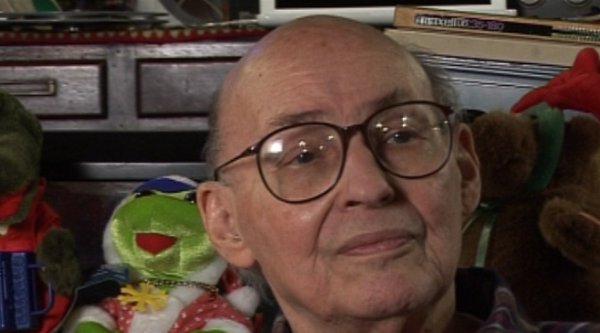NEXT STORY

Pitirim Sorokin
RELATED STORIES

NEXT STORY

Pitirim Sorokin
RELATED STORIES


|
Views | Duration | |
|---|---|---|---|
| 101. New philosophy and the historians of thought | 1 | 1588 | 01:32 |
| 102. Finding out the true scientific answer | 1 | 1521 | 01:36 |
| 103. The ghosts of Andrew Gleason and Warren McCulloch | 1586 | 02:28 | |
| 104. Andrew Gleason's help to me as a student | 1556 | 03:10 | |
| 105. Is being smart an accident? | 1 | 1788 | 02:29 |
| 106. Intelligence tests | 1781 | 01:49 | |
| 107. Trying to stink out the school chemistry lab | 1340 | 03:35 | |
| 108. Having access to so many great scientists | 1601 | 01:55 | |
| 109. Pitirim Sorokin | 1400 | 02:06 | |
| 110. 'If my hands are closed, I can't imagine a piano piece' | 1375 | 03:15 |


I don’t remember really what he was like very much 'cause… but I remember that he was very engaging and he really wanted to know what I was interested in and... and… then, he would say: 'Well why don’t you talk to von Neumann about that?' So he was… arranged... I think I mentioned that he got me to have lunch with Einstein and with Gödel also at different times. I didn’t appreciate how extraordinary this was because – as I said before – I grew up in this golden age of post war Harvard and Princeton, where all the greats... it seemed to me that all the great scientists I might ever want to meet were just down the hall or in the next building and... today, it’s again the same because of the Internet if you can get access. Because, after this gap of 30 years or so... right now, one can potentially email just about anybody on the surface of the planet, especially if your own name is a little well-known. Then, you can get through, so… so there must be some invisible networks of very influential people who… who are doing wonderful things because this communication system is around. And then, there are huge numbers of people who are getting involved in completely useless things because they’re so attractive and easy. The social networks are so easy to operate.
Marvin Minsky (1927-2016) was one of the pioneers of the field of Artificial Intelligence, founding the MIT AI lab in 1970. He also made many contributions to the fields of mathematics, cognitive psychology, robotics, optics and computational linguistics. Since the 1950s, he had been attempting to define and explain human cognition, the ideas of which can be found in his two books, The Emotion Machine and The Society of Mind. His many inventions include the first confocal scanning microscope, the first neural network simulator (SNARC) and the first LOGO 'turtle'.
Title: Having access to so many great scientists
Listeners: Christopher Sykes
Christopher Sykes is a London-based television producer and director who has made a number of documentary films for BBC TV, Channel 4 and PBS.
Tags: John von Neumann, J Robert Oppenheimer, Albert Einstein, Kurt Gödel
Duration: 1 minute, 56 seconds
Date story recorded: 29-31 Jan 2011
Date story went live: 13 May 2011